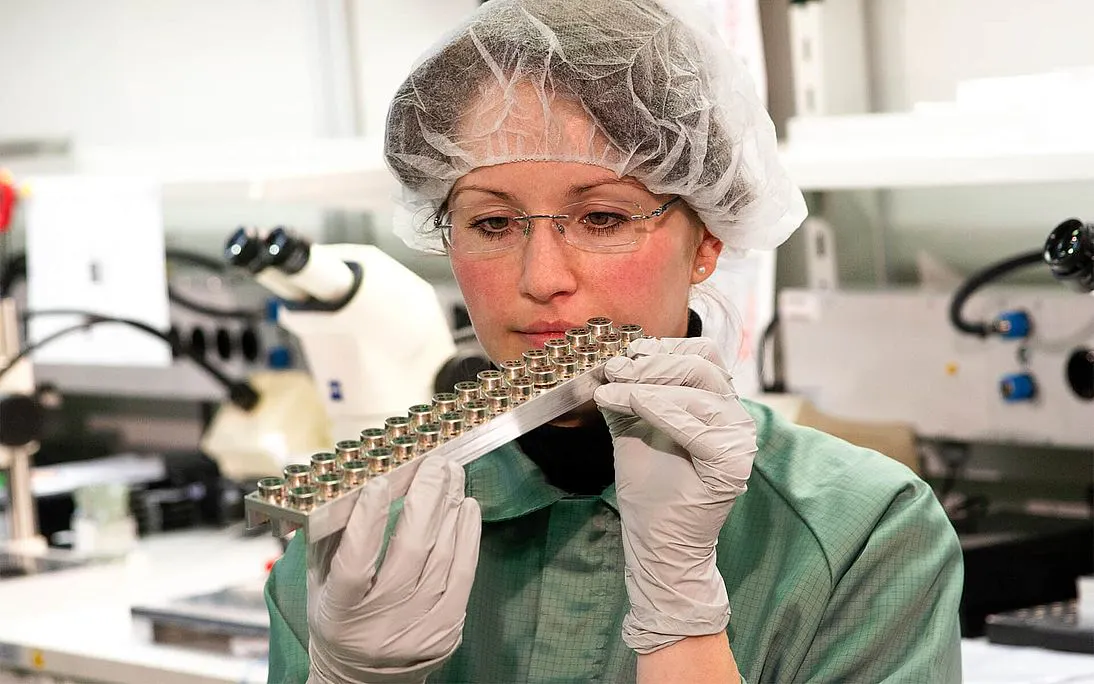
Special Times Call for Special Measures – InfraTec Responds to the Effects of the Corona Pandemic
With the current corona crisis, the world is facing a multitude of challenges. First and foremost is the protection of public health. The SARS-CoV-2 virus known as "Coronavirus" causes an infection of the respiratory tract. At present, only the symptoms, but not the disease itself, can be treated. To combat the pandemic, the availability of medical equipment, especially respiratory equipment, is of enormous importance. As a manufacturer and supplier of systematically relevant sensor components for ventilation technology, InfraTec must therefore "take special measures to be able to meet the extreme global demand in the short term", says Dr. Matthias Heinze, Managing Director of InfraTec GmbH. In order to meet this demand, at the beginning of April extra shifts were introduced.
Ventilation equipment is used to control a patient's breathing as a function of time, volume or pressure. Thus, it is necessary that the device monitors and analyses these parameters. Respiratory gas analyses are used for this purpose, for which various sensors are used. Pyroelectric detectors from InfraTec, which are integrated in an infrared gas analyser, measure, for example, the existing carbon dioxide concentration in the respiratory flow. This allows the detection of changes in respiration and consequently the optimisation of ventilation settings.
As a result of the current situation, global demand for ventilation technology has risen dramatically in recent months. The USA alone needs more than 100,000 new ventilators. In addition to very short delivery times, this requires a significant increase in the production of ventilators and their components. Therefore, InfraTec, as a manufacturer of essential components, has an important role to play in the current situation.
InfraTec is taking targeted measures to cover the enormous demand and to avoid supply bottlenecks. The production of CO2 detectors, which are required for the manufacture of ventilation technology, has top priority. " At the end of March, procurement, production and product testing immediately adjusted to the extreme demand for these products in the second and third quarter. Supporting measures and a high level of employee motivation are the basis for doing so," says Dr. Matthias Heinze. Since then, the detectors have been manufactured in a two-shift operation from Monday to Friday until 11:30 pm and additionally on Saturdays. InfraTec expresses its thanks to all its employees for their understanding and hard work during this special time.
Since its foundation in 1991, InfraTec has developed into a global specialist in the field of infrared sensor and measurement technology and now has locations in Dresden (Germany), Dallas (USA), Chesterfield (England) and Shanghai (China). The pyroelectric detectors of the Sensor division are mainly used in safety and medical technology. In this context InfraTec has become an important supplier for companies that develop, produce and distribute medical products. These include respiratory protection and ventilation equipment, which is currently of particular relevance.
The thermographic cameras of the Infrared Measurement Technology division are used, for example, in industry and science for the thermal optimisation of assemblies and elements but also for security applications such as detection of elevated body temperatures. Screening measures help to quickly and easily detect elevated body temperatures, which could be an indication of a possible viral infection of persons. Such evidence must, of course, always be followed by other examination methods that provide a reliable positive or negative statement about the disease and trigger the appropriate measures. Highly frequented areas with a high risk potential, such as first aid stations, hospitals and nursing homes, but also schools, shopping centres, large companies, sports stadiums and theatres as well as transport hubs such as airports, seaports, railway and long-distance bus stations are only a few examples where screening measures are applied.